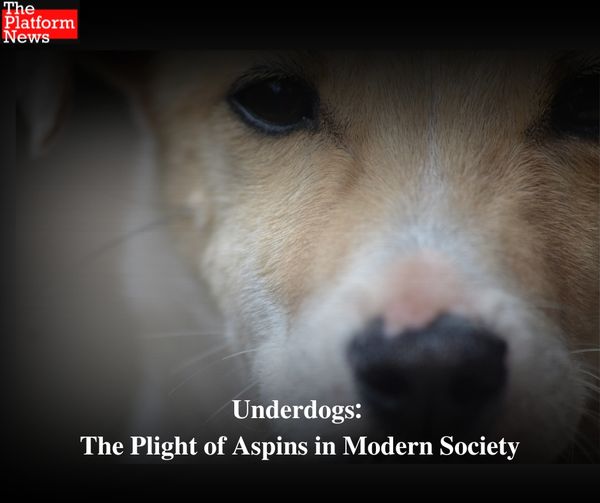You can’t be “PET FRIENDLY” if you’re not “ASPIN FRIENDLY.” This is according to the Philippine Animal Welfare Society (PAWS) after an uproar between a fur parent and a traditional Filipino restaurant, which refused to let a dog inside the establishment.
It would have been a learning experience had there been remorse in the ‘non-apology’ apology letter posted on the restaurant’s official social media accounts.
Here’s an analysis of some lines from that letter with supporting counter-arguments:
As a company that loves animals, we understand the importance of accommodating pets. However, we must also consider factors such as spacing and the safety of all our guests.
Dog Breed Info — a website that gives pertinent dog information — states that aspins are native dogs to the Philippines and are often seen roaming the streets. It is a shortened version of Asong Pinoy, which tells you that this is a domestic breed.
Royal Treatment
But what exactly is an aspin? Why the need to discriminate between breeds? Are aspin dogs known to cause a ruckus wherever they go?
Domesticity however does not translate to unruliness because the same website vouches that aspins are known to be extremely kind and lovable to all people. They can only grow as tall as 30-51 centimeters, compared to other breeds of massive sizes. This information directly faults Balay Dako’s unfounded fear of ‘spacing and the safety of all our guests.’
This breed is deservedly revered in the Philippines. One prime example is when the Philippine National Football Team called themselves the AZKALZ. This moniker is derived from two Tagalog words: Aso (dog) and Kalye (street). According to the team’s website, the askal (the politically correct term now is aspin) generally has no master, no support, fends for himself—just pure survival. This has been a similar plight for the national team in a sport that is not necessarily popular in the country.
Furthermore, The Armed Forces of the Philippines currently uses aspins to help them with various tasks. Who could forget when, in 2011, an aspin named Kabang jumped in front of a motorcycle to save two girls? This act of bravery resulted in the removal of her snout. When this news broke, donations for the dog’s reconstructive surgery poured in from around the world.
Buzzfeed reported that the 1.1 Million goal had been met after an aggressive social media campaign.
In the National Book Awards-nominated Dogs in Philippine History, author Ian Christopher B. Alfonso paid homage by writing that when you see an aspin, you are gazing at the descendant of our ancestors’ mighty, brave, and sacred dogs.
If this same reverence for the aspin was accorded by a Filipino-themed restaurant, taking into account the respect given by the national team, the Philippine Army, and an award-winning book to this humble breed, there would be no ineffective letter of apology that does not advance the cause.
A dogma that discriminates dogs does not belong in an inclusive environment that the restaurant advocated about.
Let this be a gentle reminder to restaurateurs everywhere: No singling out of pet breeds. It would have been more acceptable to not allow pets in general. Aspins do not deserve such a treatment.



